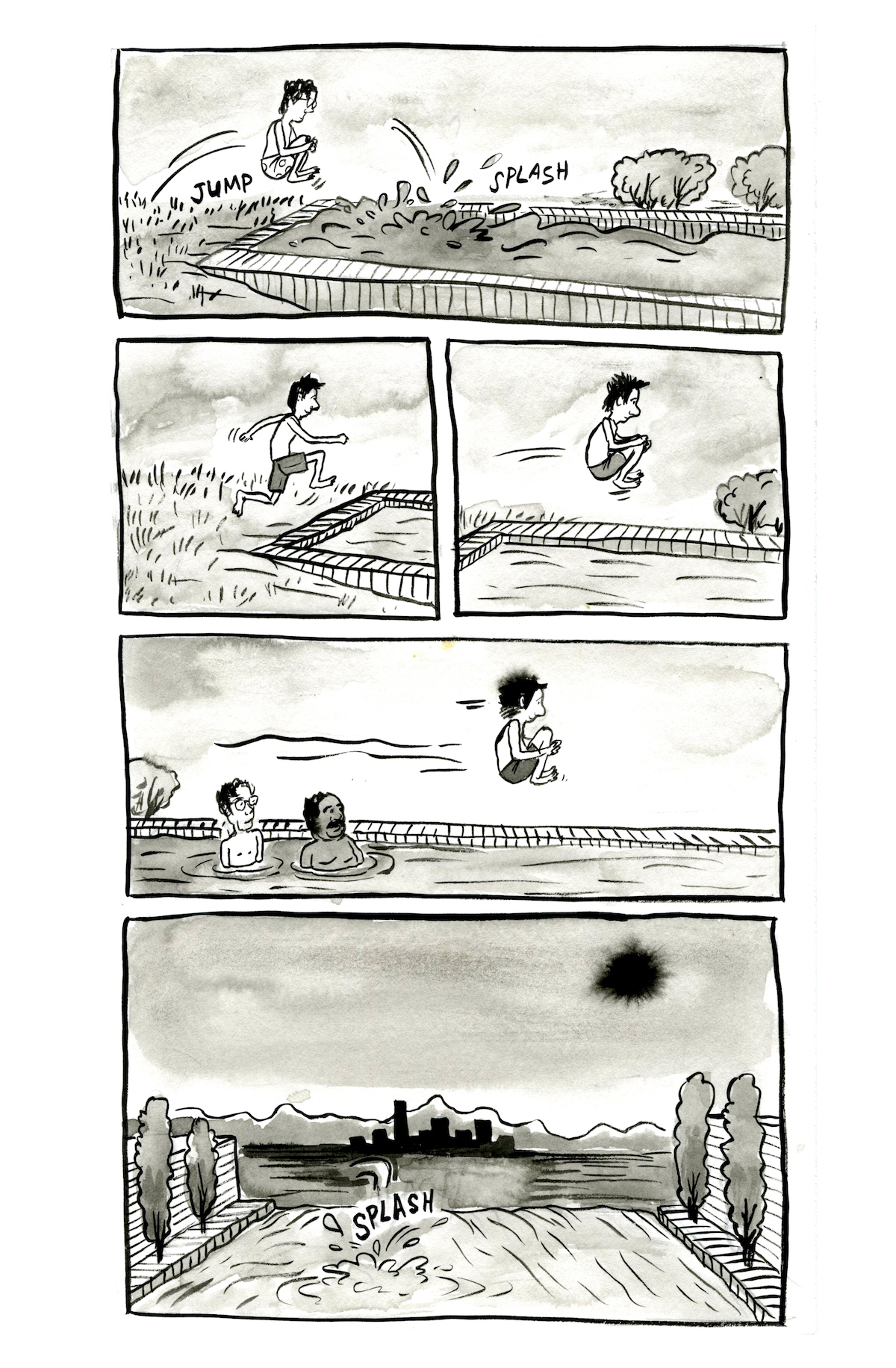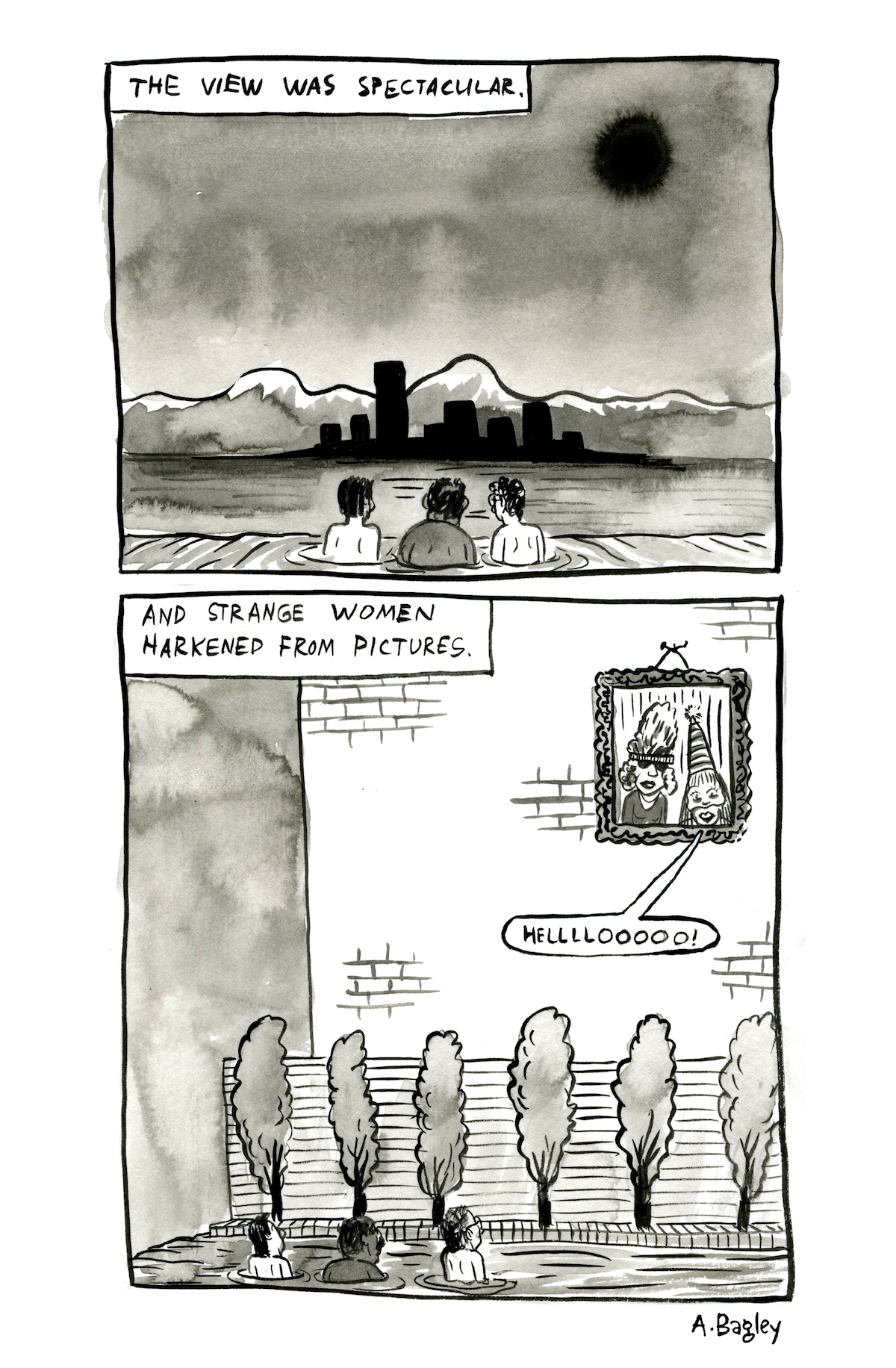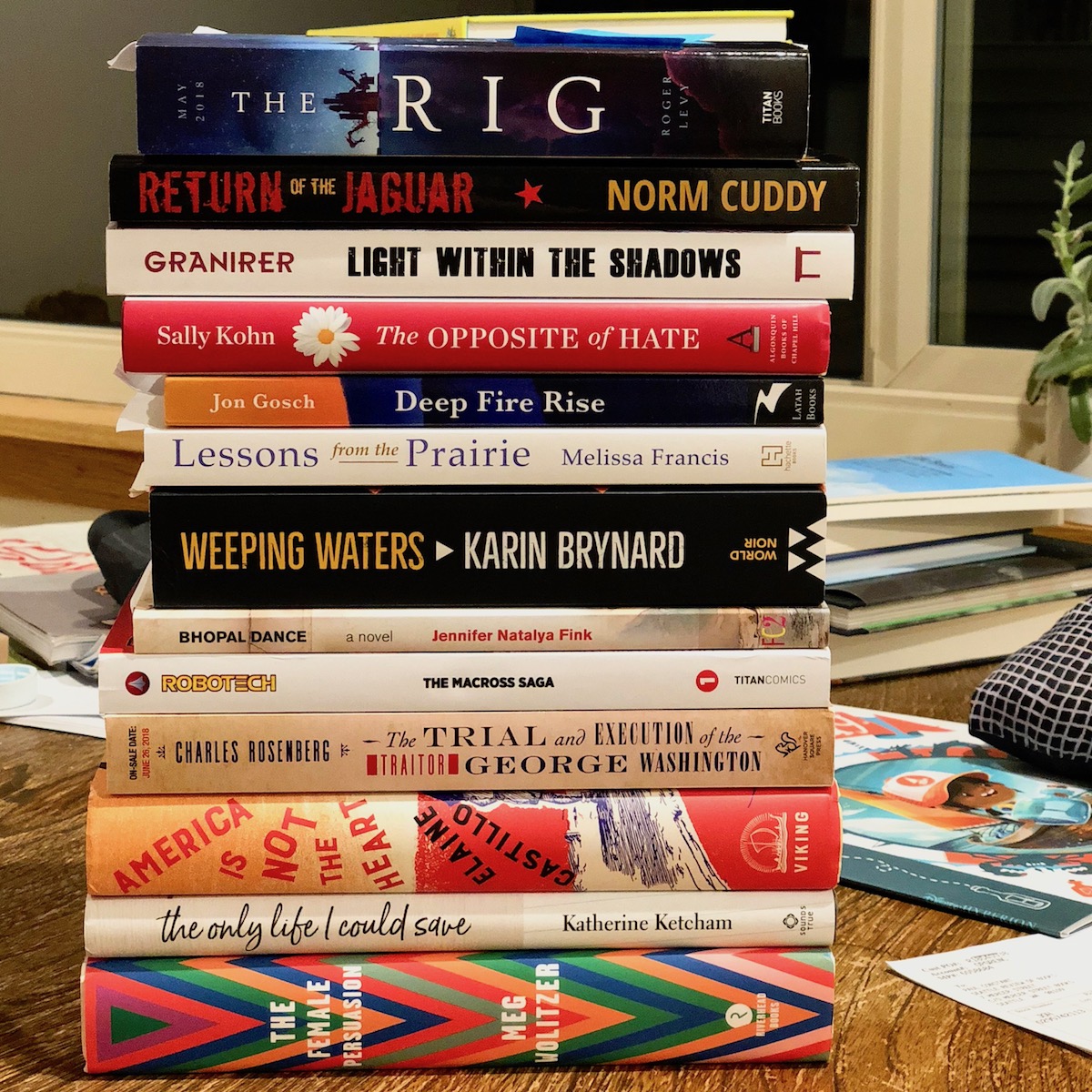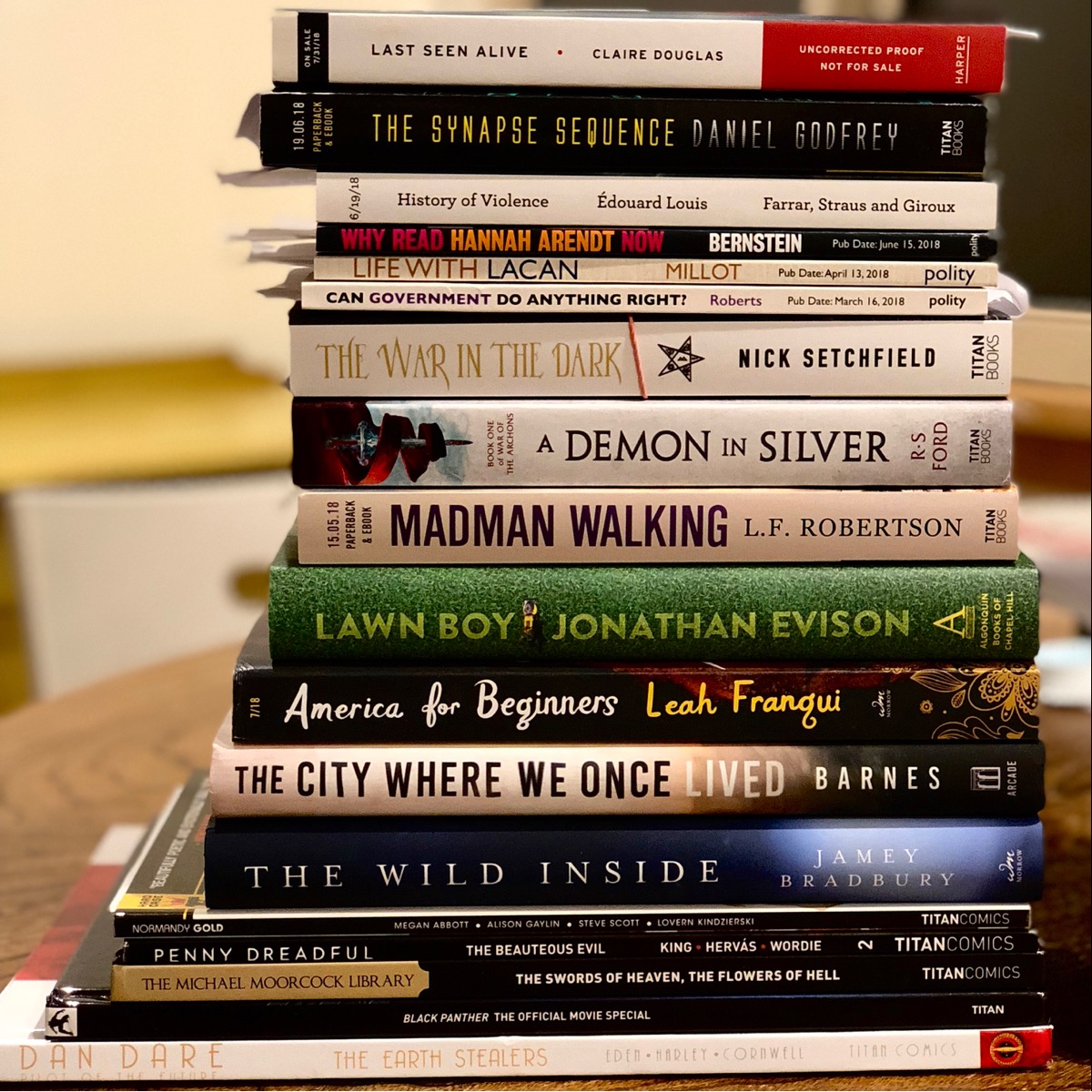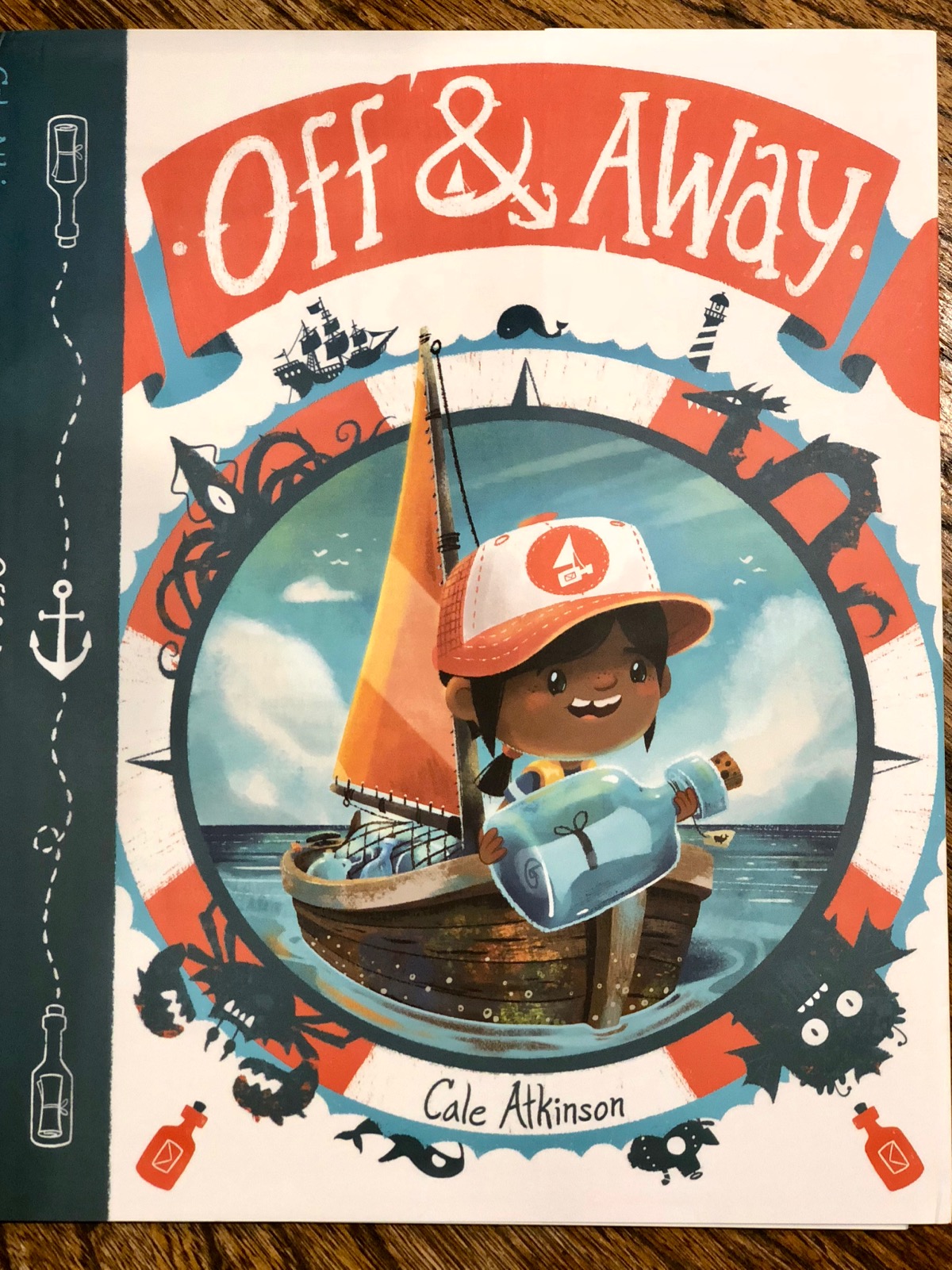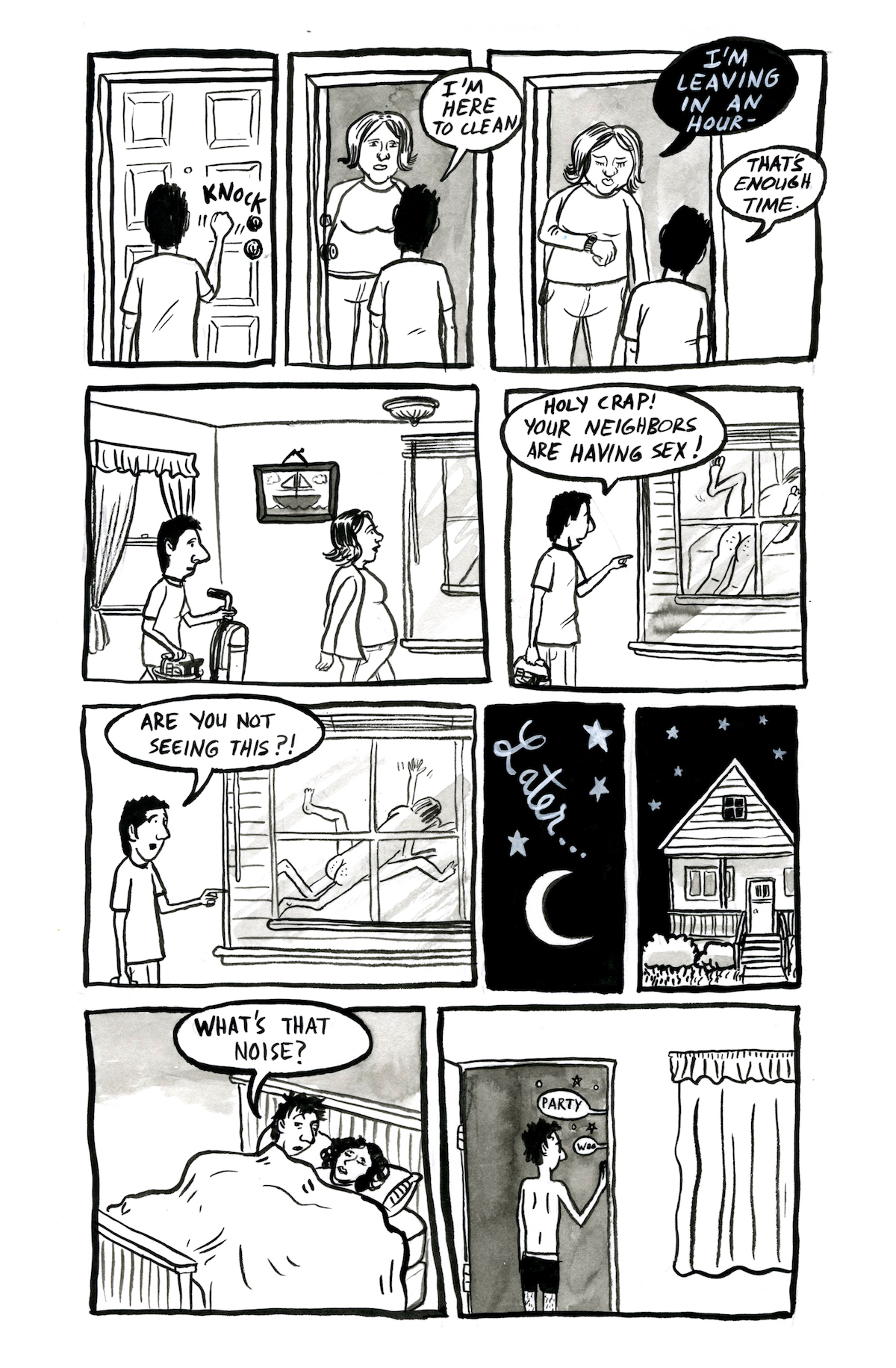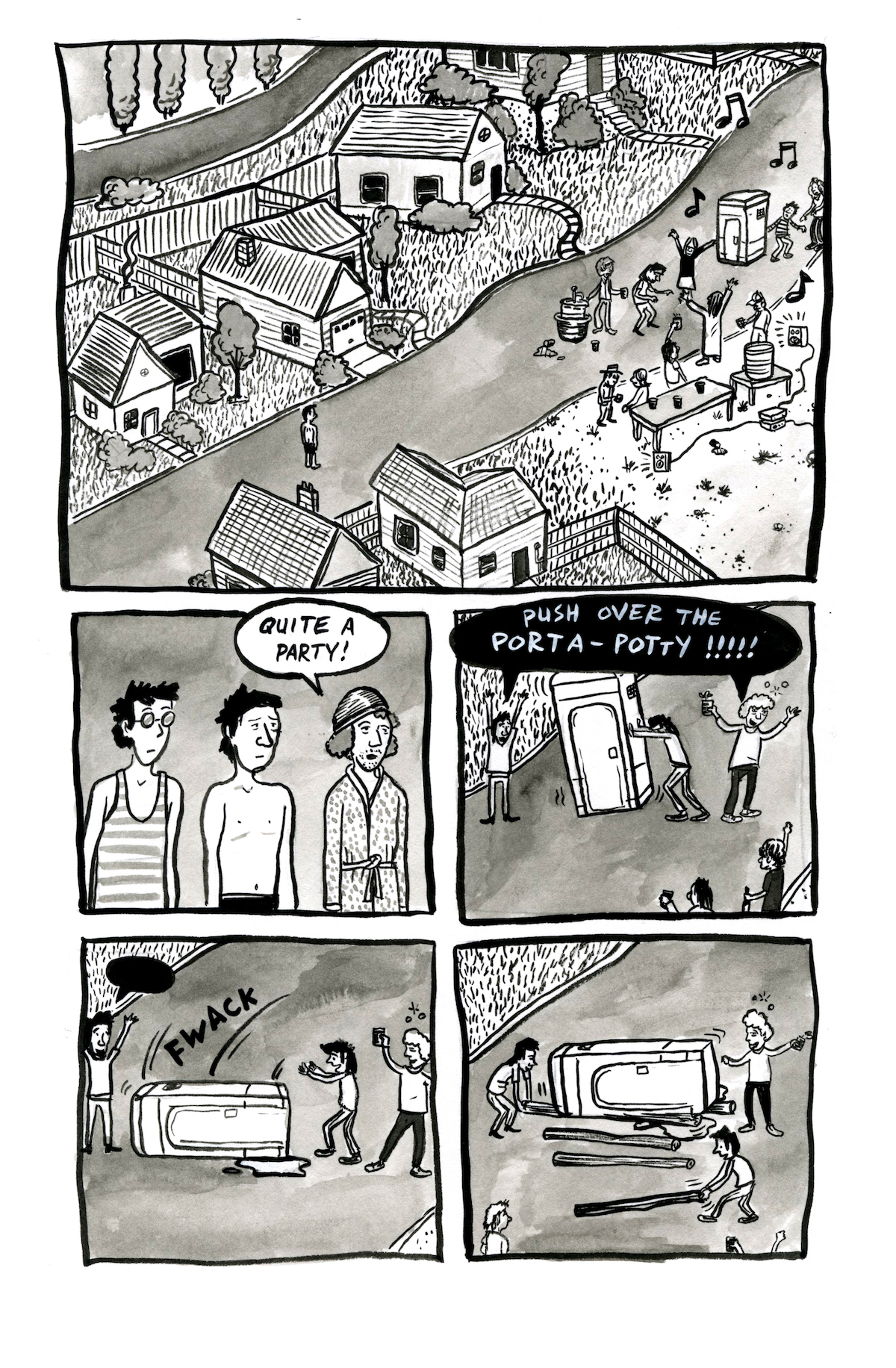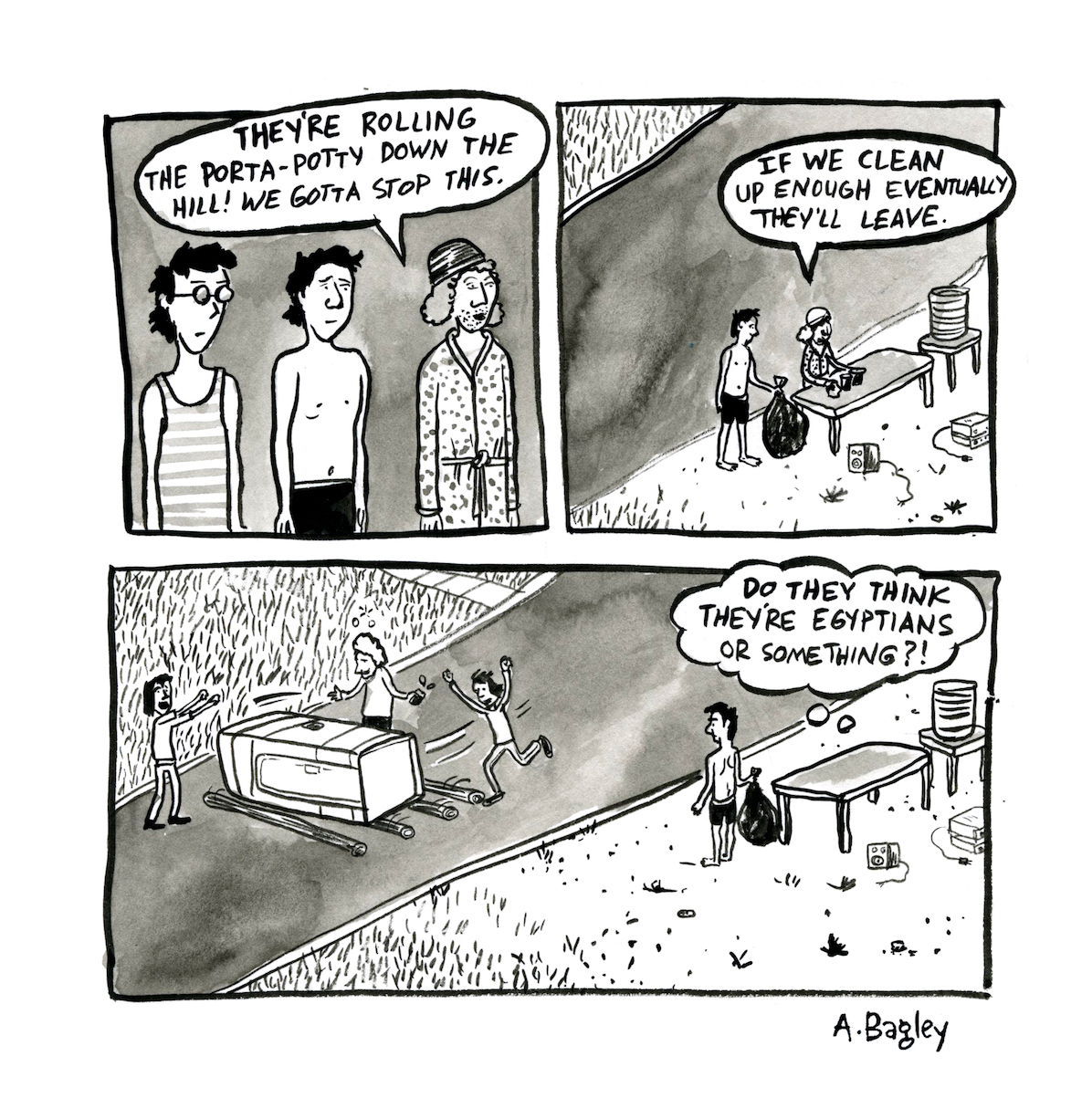The Help Desk: Bringing a book to a gun fight
Every Friday, Cienna Madrid offers solutions to life’s most vexing literary problems. Do you need a book recommendation to send your worst cousin on her birthday? Is it okay to read erotica on public transit? Cienna can help. Send your questions to advice@seattlereviewofbooks.com.
Dear Cienna,
I'm vibrating with anger and upset over school shootings. I'm totally optimistic about the response of teenagers who have more moral character than any politician I know.
I want to help my NRA-loving family see another side to this issue, without challenging their gun lust directly. Can you recommend some books that might make them feel good about their manly choices while also subtly undermining them for the goal of socialist liberalist pacifism?
Namaste,
Ginger, Greenlake
Dear Ginger,
I understand your motivation but what you are proposing has a slim chance of working, and here's why: it is an overbearing – and yet delightfully passive aggressive! – attempt to trick someone into self help. True gifts are given with the receiver's wants and tastes in mind, not the giver's.
How would you react if one of your relatives bought you More Guns, Less Crime: Understanding Crime and Gun Control Laws as a gift? My bet is you would be more resentful than appreciative. It would probably not make the top of your bedside reading stack.
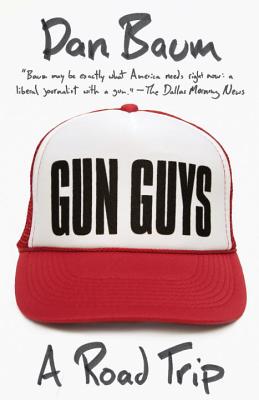
If you want to make an honest attempt at helping your NRA-loving family see another side of this issue, you have to be open to seeing their side. You could suggest a short-lived family book club, where they choose a book that represents their perspective, followed by a book you feel represents yours. Or you could simply ask for a book recommendation from them and in turn recommend a book. Gun Guys: A Road Trip, might be a good read for all of you – it's a memoir about a Democrat and former New York Times writer who loves guns, driving around America (with his gun) and cataloguing his own and other people's thoughts on guns. If you're looking to recommend fiction that drills into the emotional trauma of gun violence, I have heard good things about Before You Know Kindness, which is about an accidental shooting in a family, and Only Child, which is a first-person narrative from the perspective of a child who survives a school shooting.
Both methods would be a more honest avenue at opening a dialogue than giving the gift of a book that is neither asked for nor wanted.
Kisses,
Cienna
Book News Roundup: A correction, a cabaret, and a circle of critics
First, let's begin with a correction. In this week's Event of the Week column, I credited the Dock Street Salon solely to Dock Street Press publisher Dane Bahr. In fact, Bahr co-hosts the salon with Seattle author and publisher Heather Jacobs. And this week's edition of the Salon was entirely curated and coordinated by Jacobs, not Bahr. I sincerely apologize to Jacobs for getting that wrong, and I've amended the listing to give her proper credit.
Here's a last-minute event you ought to know about: The Bell & Battery Cabaret is a variety show that's happening at the Rendezvous at 8 pm tonight, and twice on both Saturday and Sunday. Performers include Markeith Wiley and Ade, and the show also features Seattle poet Shin Yu Pai, who says she will "read a commissioned poem about nightclub singer Pat Suzuki and also sing a song." You've got five chances to see this one, so get to it.
Did you see the Pew poll about American reading habits? Turns out one in five Americans regularly listen to audio books, almost 75 percent of Americans read a book last year, and print books aren't going anywhere:
Some 39% of Americans say they read only print books, while 29% read in these digital formats and also read print books. Just 7% of Americans say they only read books in digital formats and have not read any print books in the past 12 months.
- This year's National Book Critics Circle Award winners include Improvement by Joan Silber, Whereas by Layli Long Soldier, and Prairie Fires: The American Dreams of Laura Ingalls Wilder by Caroline Fraser.
Portrait Gallery: Annette Gordon-Reed
Each week, Christine Larsen creates a new portrait of an author for us. Have any favorites you’d love to see immortalized? Let us know
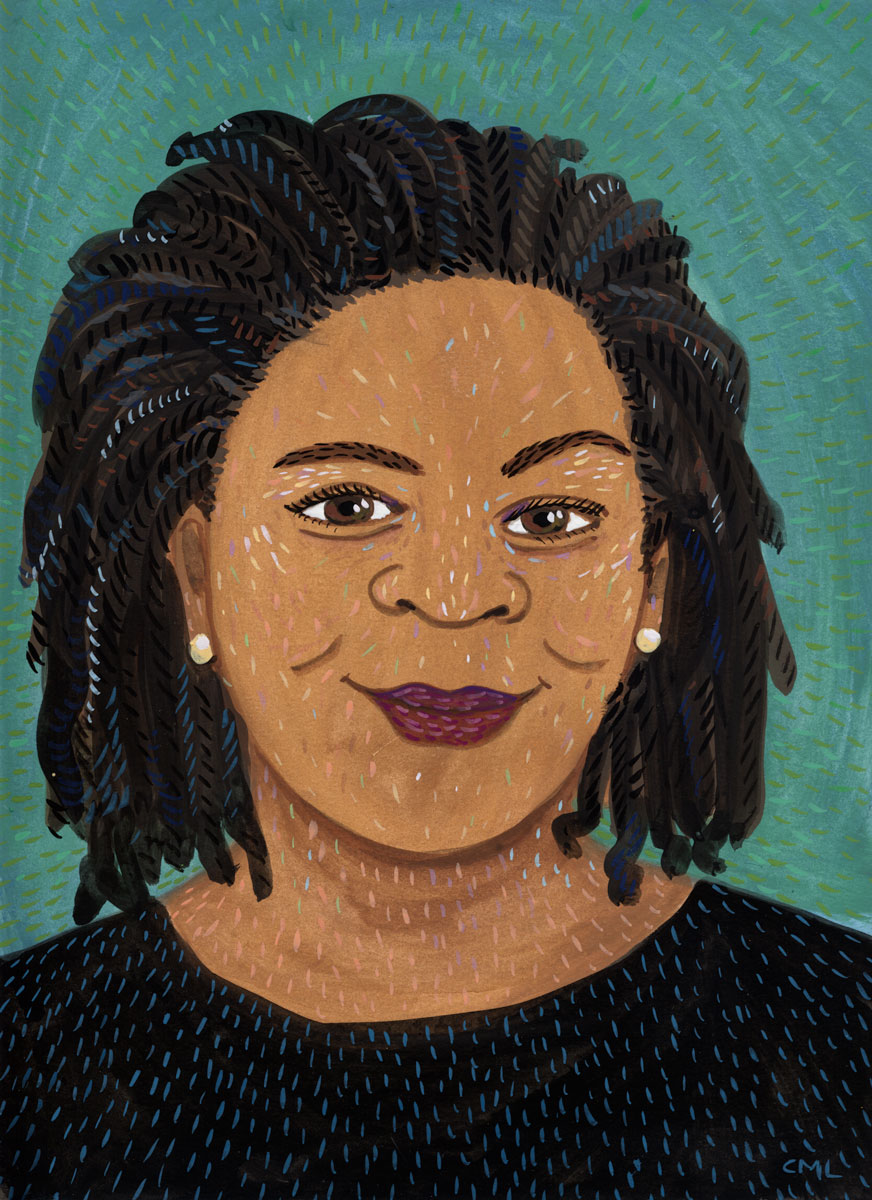
Sunday, March 18: Hedgebrook Equivox
A portrait in honor of Women's History Month: Historian and law professor Annette Gordon-Reed brought to life the story of Sally Hemings and her descendents in her Pulitzer Prize-winning book The Hemingses of Monticello: An American Family. Gordon-Reed made history herself as the first African American to win a Pulitzer Prize in History.
Gordon-Reed will join Hedgebrook for a literary star-studded brunch benefit featuring talks from playwrights Sarah Ruhl, Danai Gurira, and other Hedgebrook alumna.
*Herban Feast, 4136 1st Avenue, http://www.hedgebrook.org/equivox/, 11 am, $150.
Thursday Comics Hangover: Miami vice
I came late to cartoonist Rich Tommaso's work - the first comic of his that I read was the funny-animal Tintin pastiche Spy Seal - but I think I'm falling in love. His art is so clean, his storytelling so economical, that it seems like it's just a matter of time before one of the mainstream publishers shows up on his front lawn with a dump truck of money and forces him to start drawing Batman for a living. Tommaso is an artist who is so unique that the comics industry is bound to try to crush him into something they can more easily manipulate.

Yesterday, I picked up the first issue of Tommaso's latest series, Dry County. It's a sunny Miami noir story about a guy who meets a woman and falls into really deep shit really quickly. (Sidebar: does any noir ever take place in a dark and rainy city anymore? Seems like every noir nowadays is located in Florida or California, and is always described with the word "sunbaked.") Tommaso is using a different style here than the slick European look of Spy Seal: Dry County looks almost as though it's drawn by Dan Clowes. Every face is a little bit…off…with too-small eyes or a crooked nose or a smile that twists the wrong way across someone's cheek.
The narrator, a cartoonist named Lou Rossi, is a misanthrope. He lurks around Miami, sweating too much and trying to drink himself to some sense of peace. Then, he runs into someone in a laundry room. Her. "A blonde goddess," Rossi calls her. Of course, there's trouble. She's in an unhappy relationship, and it's been a long time since Rossi's been in a relationship, and things start to go bad quick.
There's nothing too original in the plot, but every page of Dry County brings a new delight with it. Rossi has a friend named Robert, for instance, who seems to have wandered in from a pornographic Popeye cartoon a few books over. The opening splash page of Rossi wandering around a rave is practically the dictionary definition of what it feels like to be alone in a crowd. And a gorgeous two-panel sequence of Rossi day-drinking on a porch as he stares out onto a pastel-colored Miami street will leave you drooling.
I don't know where Dry County is going, but Tommaso has proven to be such a phenomenal talent that I expect the book to keep up this delight-on-every-page spirit until the bitter - and no doubt sunbaked - end.
Book News Roundup: Rise of the machines
At Yes Magazine, Jacqueline Keeler has written an excellent story that offers some background and some wider context into the allegations surrounding Sherman Alexie. The piece is titled "Why Reading Sherman Alexie Was Never Enough: As the #MeToo spotlight moves to Indian Country, epidemic violence against Native women meets tokenism in publishing," and it's absolutely worth your time.
If, like me, you had never heard of Seattle-area sci-fi writer E Lily Yu before she was named the winner of this year's Gar LaSalle Storyteller Award, you might want to read her latest story at Clarkesworld magazine. She's definitely one of our most interesting up-and-coming talents.
All that autumn and winter she tended the flower. After the petals faded and fell, slender leaves speared up, glowing with life and green throughout the cold winter. She fed the flower her secrets, burying them one by one, and watered it with drops of her blood, red as the flower had been, because there was no death in the garden, and the flower, her grandmother had said, needed death to live.
You might have nightmares if you watch this video of a Trump supporter who threatened to burn down a Berkeley bookstore. Those are two people who just want to destroy everything beautiful in their path. It's like staring into a vacuum.
And if that story didn't give you nightmares, this report about a fully automated bookstore in Beijing just might do the trick.
The automated store even features a robot who is touted as a key feature of the store. Although she didn't find the store's prices to be competitive, customer Mrs. Zhang commended its automated worker, saying that "the interaction with the store's robot is something worth experiencing, especially for the children."
The plumber who went to an art museum (and other American heroes)
Published March 14, 2018, at 12:00pm
Art tells us who we are, sometimes more than we want to know. The catalog from a recent exhibition at the Smithsonian National Portrait Gallery turns a mirror on American attitudes toward work, race, and gender.
Visual art and comics art collide at Grumpy Old Man's Comics, Art, and Collectibles
Alan LaMont, the owner of Ballard's The Grumpy Old Man's Comics, Art, and Collectibles doesn't come across as a grumpy old man. He's downright chipper, in fact, and he's got the youthful vigor and charm of someone who's finally living a life he's been dreaming about for decades.
After years "working in corporate America" in Rochester New York and dreaming of the Pacific Northwest, LaMont finally moved to Seattle on Labor Day of 2017. He brought his enormous, high-quality comics collection - about 200 boxes - along with him, and he set about fulfilling another longtime dream: opening a comic shop/art gallery. LaMont has some experience working in a gallery, and he's attended comics conventions his whole life, but he'd never owned a space before. "I didn't want to work for a company anymore," LaMont says, "so I thought I'd combine the two things that I love." The store officially opened on the day after Thanksgiving.
LaMont is an artist. He paints as a hobby, but he has primarily worked in linocut art since he was 12. (A whole wall at Grumpy Old Man's Comics displays his work for sale.) He likes the way linocut changes his thought process: in order to create good prints "you have to think mirrored and positive-to-negative." It took him a long time to get into the mindset of a linocut artist, but now "I have a clear thought process."
That explains the gallery part, but why a comic book store? "I learned how to read on comics," LaMont explains. His grandmother was a teacher, and when she noticed his love of superhero cartoons, she bought him a batch of comics and helped him work through them. "She had me reading at four years of age," LaMont says. He's been reading comics ever since.
Grumpy Old Man's Comics is located right off Market Street. The shop is split into three distinct rooms. When you walk in, you're standing in the middle of the room with new and recent comics. To your left is a room of classic and collectible comics, ranging all the way back to the 1960s. And to the right is the gallery, with affordable prints and a rotating display of artists. The shop is an eager participant in both Ballard Art Walk, on the second Saturday of the month, and Ballard Night Out every third Thursday.
LaMont is thrilled with the response the comics side of the business has seen since he opened. When he started the shop, LaMont says, "I was thinking that probably the artwork side of it would be the easier sell of the two, and that it would take a while to get my comic book business built up. It's proven to be the opposite," he says. "The comics are already on the verge of carrying the business."
Grumpy Old Man's offers discounts of up to 30 percent for subscribers, and LaMont is developing a regular clientele. Some of the new subscribers are likely orphans of Seattle comics-shop attrition: Ballard hasn't had a comics shop since Arcane Comics moved to Shoreline a couple years ago, and downtown's Zanadu Comics closed last month.
LaMont wants curious Seattleites to know that Grumpy Old Man's is "a rather eclectic mix of things, not a typical comics store and not a typical art gallery." To draw in more new customers, the store is having a sizable back issue sale on Saturday, March 31st from 10 am to 6 pm. There's something for everyone in the shop: LaMont is creating a space where different styles of art - disparate styles that fifty years ago would have been dismissed as "low" and lauded as "high" - can live under the same roof.
Our Poet in Residence is everywhere this week!
This week you have two chances to see our Poet in Residence, Julene Tripp Weaver, read her poetry aloud.
On Thursday, March 15th, Julene is reading at Soul Food Coffehouse in Redmond at 7 pm. She'll be sharing the stage with other poets including Anita K. Boyle, Nancy Canyon, Thom Schramm, Heidi Seaborn, and Michael Dylan Welch to celebrate an ice cream-related poetry anthology, titled Ice Cream Poems: Reflections on Life with Ice Cream. And of course there will be ice cream served at this reading. You can let them know you're coming on the Facebook Event page.
And then the next day — Friday, March 16th — Julene will be reading from her latest book, truth be bold — Serenading Life & Death in the Age of AIDS, at 7 pm at Open Books. This is a big reading for her because it's the first event celebrating truth be bold since it was announced as a finalist in the Bisexual Nonfiction category of the Lambda Literary Awards, up against esteemed competition including Roxane Gay's Hunger. Julene will be sharing the stage with Seattle poetry legend Tara Hardy. This is billed as a scent-free event, so please leave the perfumes and such at home.
Both events are free. Go out and show your support for a longtime Seattle poet whose work is finally getting some of the recognition it deserves. We couldn't be prouder to celebrate Julene's work on our site in this, a momentous month in her career as a Seattle poet.
Soldiering on
Published March 13, 2018, at 11:47am
If you don't read military stories, Olympia author Matt Young's memoir about life in the Marine Corps might be just the book for you.
How I Came to this World
- after Gregory Pardlo
It was leap year, on a Thursday, I was born
upstate New York, Borsch Belt small town.
To a family of farmers, where covered bridges crossed
creeks. Twenty miles to the racetrack in
Monticello, our nearest city, where father worked
for an air conditioning installation firm.
The Evergreens of the Catskills.
A mother off seeking four-leaf clovers.
Born to arrowheads and quartz, to blueberry
bushes in back fields. I ran to frogs
and salamanders across stone fences
through wild woods, no eyes followed me.
It was during the cold war red scare, but I,
a wild barn child was unaware. Daddy’s little girl
I wore patent leather shoes at Easter and
blue velvet at Christmas. The cameo necklace,
Mother gave me, fell into a stream. I was a wild thing
from go, feeling the velocity of wind. The night
I came a fierce push. I was born clear white,
pastel perfect skin, with spit-on Irish blood
and German ancestry I was told to never
acknowledge by a direct line uncle. The year
I came, there was a storm brewing in the guts
of women to have climaxes they’d never reached.
There was a surge to land on the moon. The
Atom bomb was introduced from Britain. Born
in the year of the Dragon, I knew it would be rocky
not a song in the rain, nor the cotton candy
fun world where mother resided.
The death of Reason
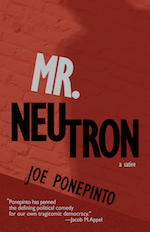
Ponepinto is known to many of you as the founding publisher and fiction editor of the Tahoma Literary Review. We're honored to have him as a sponsor and delighted to suggest his lastest to you.
Sponsors like Joe Ponepinto make the Seattle Review of Books possible. Did you know you could sponsor us, as well? If you have a book, event, or opportunity you’d like to get in front of our readers, reserve your dates now.
Your Week in Readings: The best literary events from March 12th - March 18th
Monday, March 12: Cut You Down Reading
Sam Wiebe's latest mystery is about a Vancouver student who disappears and a teacher who hires a private investigator to find her. Anarchists are involved somehow. Wiebe will appear in conversation with Seattle author Brian Thornton tonight.Third Place Books Lake Forest Park, 17171 Bothell Way NE, 366-3333, http://thirdplacebooks.com, 7 pm, free.
Tuesday, March 13: Lit Fix 5th Anniversary
For five years, Lit Fix has been pulling down big and appreciative audiences on Capitol Hill, with proceeds going to local charities. Tonight, authors Megan Chance, Putsata Reang, Montreux Rotholtz, and Natalie Singer help to celebrate the books-and-music series. The $5 door charge benefits Team Read, a great teen literacy organization. Chop Suey, 1325 E. Madison St, 324-8005, http://chopsuey.com, 7 pm, $5, 21+.Wednesday, March 14: A Long Way from Home Reading
Australian author Peter Carey is a world-class talent, and I'm not just saying that because he's won a shelf full of awards. A Carey novel is always an intensely readable thing, and he's the rare kind of talent that doesn't preen or showboat. He's just interested in expending exactly the right amount of effort for every one of his books. His latest novel takes place during a car race around Australia in the 1950s, and it explores Aboriginal identity. Elliott Bay Book Company, 1521 10th Ave, 624-6600, http://elliottbaybook.com, 7 pm, free.Thursday, March 15: Dock Street Salon
See our Event of the Week column for more details.Phinney Books, 7405 Greenwood Ave. N, 297-2665, http://phinneybooks.com, 7 pm, free.
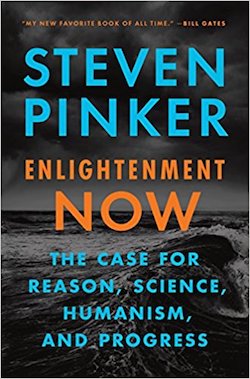
Friday, March 16: Enlightenment Now Reading
Harvard professor Steven Pinker's new book says everything is great. No, really. Press materials say "in 75 jaw-dropping graphs, he shows that life, health, prosperity, safety, peace, knowledge, and happiness are on the rise worldwide." Uh, okay, but the president is still a dumpster fire. University Temple, 1415 NE 43rd St,634-3400, http://www2.bookstore.washington.edu/, 7 pm, $35.Saturday, March 17: Wonderland Reading
Portland poet Matthew Dickman, who has now published three poetry collections, reads with Portland historical novelist Emily Strelow. Strelow's book looks at two very different times in Northwest history - the late 1800s and the mid-1900s - to examine our Northwest character. Elliott Bay Book Company, 1521 10th Ave, 624-6600, http://elliottbaybook.com, 7 pm, free.Sunday, March 18: Hedgebrook Equivox
Okay, look, so this is maybe the priciest brunch you'll ever attend, but this benefits Hedgebrook, and Hedgebrook does amazing things. The writers' residency for women has changed the course of careers and inspired generations of women to write their stories. This afternoon, join Hedgebrook for a literary star-studded event featuring talks from playwright Sarah Ruhl and historian Annette Gordon-Reed and appearances from other Hedgebrook alumna. Herban Feast, 4136 1st Avenue, http://www.hedgebrook.org/equivox/, 11 am, $150.Literary Event of the Week: Dock Street Salon at Phinney Books
Phinney Books had hosted the Dock Street Salon for a couple years, and the reading series filled a very important geographical slot in Seattle's literary scene: there just aren't too many readings for adults in the miles between University Book Store and Third Place Books. The Salon, which is named after Seattle publisher Dock Street Books, is an informal reading and Q&A session with local authors cohosted by Seattle author and publisher Heather Jacobs and the ever-charming and enthusiastic publisher of Dock Street, Dane Bahr.
The Salon disappeared for a little bit there, and I'd worried it had moseyed off into the hall of quietly retired readings series, but I'm happy to report that a new installment - the first of 2018 - arrives this Thursday at Phinney Books.
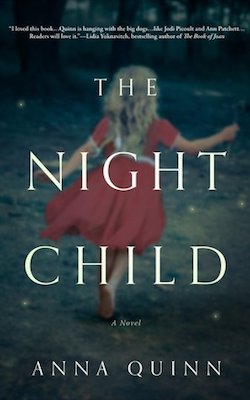
Thursday night, in a reading curated and coordinated by Jacobs, Dock Street Salon is providing a platform for two local first-tine novelists. The first is Port Townsend bookseller Anna Quinn, whose brand-new book The Night Child is about a high school teacher who is terrified by a ghostly vision of a girl's face. The woman desperately seeks a logical explanation, but she might not be prepared for the answer.
Local journalist Jennifer Haupt will publish her first novel, In the Shadow of 10,000 Hills, on (no foolin') April 1st. It's a family saga that stretches from Georgia to the Rwandan genocide. (Haupt covered the genocide's aftermath as a reporter in 2006.)
This kind of event is exactly what Phinney Books does so well in its Salons: it presents local authors in a low-key venue that encourages intimacy and a supportive atmosphere. This is a great opportunity to witness two novelists at the very beginning of their writing careers - and to welcome back one of the best reading series in Seattle.
Phinney Books, 7405 Greenwood Ave. N, 297-2665, http://phinneybooks.com, 7 pm, free.
UPDATE 3/15/2018: An earlier version of this post solely credited Bahr for creating Dock Street Salon. The post has been updated to include Heather Jacobs, who solely put together this week's reading.
The Sunday Post for March 11, 2018
Each week, the Sunday Post highlights a few articles we enjoyed this week, good for consumption over a cup of coffee (or tea, if that's your pleasure). Settle in for a while; we saved you a seat. You can also look through the archives.
From Afrin to Ghouta
Hungarian philosopher G. M. Tamás writes passionately, furiously, and without sentiment (will make sense when you read it) of the world’s inexcusable behavior toward refugees: not only our failure to offer assistance to those who flee violence and brutuality, but our cowardly eagerness to make demons of those who have been injured — for fear of becoming powerless ourselves.
Who is feared and who is hated in this Europe where it is my fate — you might say, my good fortune — to live?
It is precisely the few who manage to escape from various locations of hell, yesterday called Aleppo, now called Afrin and Ghouta, tomorrow who knows. It is not victorious armies or fearsome insurgents, but terrified refugees driven insane by pain and mourning and by the cruelty of armed men. It is not the cruel armed men who are hated, but their victims.
It is not the torturers but the tortured.
The Male Glance
Lili Loofbourow on the problem of accurately perceiving art, when our gazes are tilted to quickly confirm our bias — women’s stories are domestic, emotional, shallow; men’s are complex and deserving of attention — and move on.
The male glance is the opposite of the male gaze. Rather than linger lovingly on the parts it wants most to penetrate, it looks, assumes, and moves on. It is, above all else, quick. Under its influence, we rejoice in our distant diagnostic speed. The glance is social and ethical the way advice columns are social and ethical, a communal pulse declaring — briefly, definitively, and with minimal information — which narrative textures constitute turgid substance, which diastolic fluff. This is the male glance’s sub rosa work, and it feeds an inchoate, almost erotic hunger to know without attending — to omnisciently not-attend, to reject without taking the trouble of analytical labor because our intuition is so searingly accurate it doesn’t require it.
How to Lose Your Job From Sexual Harassment in 33 Easy Steps
Deborah Copaken outlines, one move at a time, the game of financial and then sexual chess that Ken Kurson at the New York Observer pulled her into. The story is almost absurdly Victorian: he promises full time work, she resigns a position elsewhere, he denies the offer was ever made. Now financially insecure, she attempts to extract some kind of return on his promise. Until one day the terms of the negotiation become too clear to ignore.
As we all try to hash out a taxonomy of abuses of power, this kind of clear and honest self-reporting is invaluable; Copaken is brave, and the response from the New York Observer is the absolute worst sort of weak sauce.
29. Write an email to your new editor. Now that the Big Important Male Editor is gone, you say, you’d love to start writing your column again. Are told that the paper is not looking to pick up your column again for the time being. Ask why. Get no response.
30. Forward the “How come you never asked me out?” email to your new editor and write a brief summary of everything leading up to it. Are told, in part, that it doesn’t feel like any of her business. 31. Give up. Just give up.
The British amateur who debunked the mathematics of happiness
Andrew Anthony profiles Nick Brown, the amateur mathematician who took on the happiness establishment and won (sort of). This is a delightfully useless argument and just everything that’s best about the ivory tower, from the assigning of a number (2.9013) as a measure of joy, to the avidity with which the digital life-improvement machine picked up the idea, to the infighting that ensues with the maths are called into question. Yes!
"The Lorenz equation Losada used was from fluid dynamics," says Sokal, "which is not the field that I'm specialised in, but it's elementary enough that any mathematician or physicist knows enough. In 10 seconds I could see it was total bullshit. Nick had written a very long critique and basically it was absolutely right. There were some points where he didn't quite get the math right but essentially Nick had seen everything that was wrong with the Losada and Fredrickson paper."
Sokal did a little research and was amazed at the standing the Fredrickson and Losada paper enjoyed. "I don't know what the figures are in psychology but I know that in physics having 350 citations is a big deal," he says. "Look on Google you get something like 27,000 hits. This theory is not just big in academia, there's a whole industry of coaching and it intersects with business and business schools. There's a lot of money in it."
When Twenty-Six Thousand Stinkbugs Invade Your Home
We thought it was roaches that would survive us. Turns out it might be stinkbugs — and they might not wait for us to vacate. Kathryn Schulz tracks the their ascendancy in a wide-ranging and sometimes horrifying story about a polyphagic beetle that’s found a predator-free paradise in the suburban and rural United States.
The brown marmorated stinkbug has made a name for itself by simultaneously threatening millions of acres of American farmland and grossing out the occupants of millions of American homes. The saga of how it got here, what it’s doing here, and what we’re doing about it is part dystopic and part tragicomic, part qualified success story and part cautionary tale. If you have never met its main character, I assure you: you will soon.
Whatcha Reading, Maris Kreizman?
Every week we ask an interesting figure what they're digging into. Have ideas who we should reach out to? Let it fly: info@seattlereviewofbooks.com. Want to read more? Check out the archives.
Maris Kreizman is a writer, critic, and author of Slaughterhouse 90210.
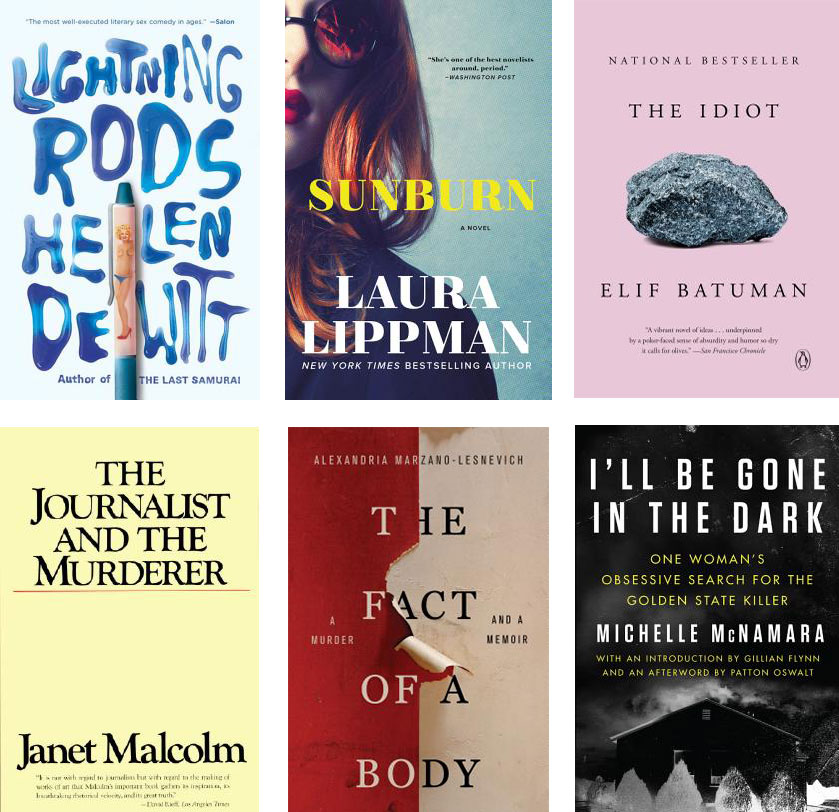
What are you reading now?
I’m reading Helen DeWitt’s novel, Lightning Rods. Now that I’m freelancing I have some time to catch up on a few of the books I missed now that I’m not frantically trying to read new things all the time. I don’t even want to try to explain what the premise of Lightning Rods is because wow, it’s a doozy. Let’s just say that its treatment of women in the workplace is particularly disturbing and apropos in the #MeToo era. It’s one of those satires of corporate culture that I’d like to believe is too wacky and too dystopic to be true, but I never say never to anything anymore.
I also plan on going to Books Are Magic to buy Sunburn by Laura Lippman today.
What did you read last?
I was just in conversation with Elif Batuman for the paperback launch of The Idiot, and she is one of the smartest and funniest people ever. So I revisited the novel, and I got caught up in it just as much as the first time. I have never read such an earnest coming-of-age novel that was so much about intellectual curiosity (it’s set during the heroine’s first year at Harvard in 1995) and how to craft one’s own narrative. It’s an actual campus novel that doesn’t have much sex or drugs or partying in it but who cares? It’s about falling in love with ideas, as well as one pretentious upperclassman who describes a dog as such: “It has such soulful eyes. They’re somehow Dostoevskian.” What a dick, right? Perfection.
What are you reading next?
I'm working on a piece about true crime, so I recently read Janet Malcolm’s The Journalist and the Murderer, which will change the way I read any other work of true crime from now on. It will remind me to consider the role of the journalist in the telling of a story that’s meant to entertain and horrify in equal measures. With this in mind, next up is The Fact of a Body by Alexandria Marzano-Lesnevich and I’ll Be Gone in the Dark, a book about the Golden State Killer that will be published posthumously. Author Michelle McNamara’s suddenly died while writing the book, and so it was up to her husband, Patton Oswalt, to tie up the loose ends. Tragedy upon tragedy, and yet I’m eager to read the piece of art that resulted.
The Help Desk: How do I talk to my kids about authors and #MeToo?
Every Friday, Cienna Madrid offers solutions to life’s most vexing literary problems. Do you need a book recommendation to send your worst cousin on her birthday? Is it okay to read erotica on public transit? Cienna can help. Send your questions to advice@seattlereviewofbooks.com.
Dear Cienna,
As more and more #metoo-style accusations are made against authors of children’s and YA books, my partner and I are talking a lot about what we want to introduce our kids to — which of the great books written by awful people are worthwhile anyway.
Now we’re struggling with the corollary: we’re both readers; we know how authors are heroes to kids — and grownups too. When we let our kids read books whose authors are much less than perfect, how and when do we talk to them about who their heroes really are? And how to take (or not) value from the stories and characters they love?
— Asking for my kids (really)
Dear (really) Concerned Parent,
Human beings are experts at compartmentalizing contradictions – it is the only way pro-life conservatives can support funding cuts for programs like WIC while swathed in cheap suits fabricated by children overseas, for example, or how liberals can enthusiastically support bumperstickers like "CoExist" but complain that the homeless are damaging their property values. It also explains why gluten-free donuts are a thing.
Some of my favorite authors growing up were awful. Lewis Carroll (Alice in Wonderland) enjoyed taking nude photos of little girls. William Golding (Lord of the Flies) tried to rape a teenager, according to his private journals. JD Salinger (Catcher in the Rye) also had a fondness for teenagers, and celebrated children's book author Enid Blyton (The Enchanted Wood) was herself a terrible mother, according to her children.
Fortunately, I didn't learn that my heroes were flawed until I was old enough to read their biographies myself. Discovering that some were creeps and perverts didn't diminish my memories of their work, it simply injected reality into the fantasy. And isn't that what growing up is? Slowly dipping your toes into reality until you're navel-deep in shit?
So here's my advice: Read books to your kids that are unpredictable and imaginative and will make them love reading as much as you do, regardless of the part-time creeps or monsters that penned them. But when they ask questions about the world – if they want to know what #metoo is – don't be reticent to add authors to the conversation. They will naturally compartmentalize their fond book memories from reality. And kids have a right to know that their heroes have flaws and some monsters are capable of creating beauty.
Kisses,
Cienna
Book News Roundup: Get ready for a sci-fi reading (with beer)
Next Tuesday, outstanding sci-fi writing organization Clarion West is hosting a reading and open mic at Naked City in Greenwood. First, the open mic will encourage people to share short works, and then local sci-fi authors Randy Henderson, Seanan McGuire, Evan Peterson, and E. Lily Yu take over the stage. Tickets are ten bucks, and it benefits the Clarion West Writers Workshop. I hope you'll consider coming out and supporting emerging sci-fi writers.
At Seattle Magazine, Erica C. Barnett wrote about a Seattle Public Library employee who was stuck with a needle in a library bathroom. Unlike other library systems, SPL doesn't provide sharps containers — and for the most maddening reason in the world:
[SPL Spokesperson Andra] Addison says there’s a simple reason that the library doesn’t provide sharps containers for drug users: “We don’t allow illegal drug use in the library. It’s against our rules of conduct.” Providing sharps containers would be a tacit acknowledgement that people are using drugs at the library in violation of those rules.
Okay, look. In a perfect world, nobody would suffer from opioid addiction. But we do not live in a perfect world. This dumb head-in-the-sand policy is endangering our librarians, and SPL needs to reassess their responsibility to their employees immediately. Thanks to Barnett for the great reporting.
Great news! We told you a couple months back that West Seattle coffeeshop C&P Coffee, home to the Words West readings series, was in danger of closing unless they could raise the funds to save the site from development. They have successfully raised the money, which means C&P isn't going anywhere. Thanks to all who helped.
Last week, Capitol Hill Seattle Blog talked with Elliott Bay Book Company manager Tracy Taylor about the bookstore's upcoming SeaTac outlet.

